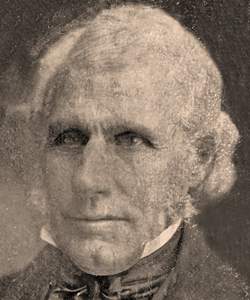John Davis (Congressional Biographical Directory)
Reference
DAVIS, John, (father of Horace Davis, great-great grandfather of Henry Cabot Lodge, Jr.), a Representative and a Senator from Massachusetts; born in Northboro, Mass., January 13, 1787; attended Leicester Academy, and graduated from Yale College in 1812; studied law; admitted to the bar and commenced practice in Worcester, Mass., in 1815; elected to the Nineteenth and to the four succeeding Congresses and served from March 4, 1825, to January 14, 1834, when he resigned, having been elected Governor; Governor of Massachusetts 1834-1835; elected as an Anti-Jacksonian (later Whig) to the United States Senate and served from March 4, 1835, to January 5, 1841, when he resigned; chairman, Committee on Commerce (Twenty-fourth Congress); Governor of Massachusetts 1841-1843; again elected in 1845 to the United States Senate, as a Whig, to fill the vacancy caused by the death of Isaac C. Bates; reelected in 1847 and served from March 24, 1845, to March 3, 1853; declined to be a candidate for renomination in 1852, and retired from public life; died in Worcester, Mass., on April 19, 1854; interment in the Rural Cemetery.
“Davis, John,” Biographical Directory of the United States Congress, 1774 to Present, http://bioguide.congress.gov/scripts/biodisplay.pl?index=D000117.
John Davis, Mexican War (American National Biography)
Scholarship
Davis was one of the two senators (along with John M. Clayton of Del.) who voted against the declaration of war against Mexico on 12 May 1846. On 12 August 1846 he spoke at such length in favor of the Wilmot Proviso, an amendment to a military appropriations bill that stipulated that no territory acquired from Mexico would be open to slavery, that the Senate had no time to vote. The bill had already passed the House. Davis later explained that he had intended to speak long enough to leave time only for a vote, which he thought would be positive. He doubted opponents of the proviso would refuse needed military appropriations and delay peace negotiations, and he claimed simply to have misjudged the time. Scholars remain divided on the plausibility of Davis's explanation and whether the bill would have passed had it come to a vote.
Kinley Brauer, "Davis, John," American National Biography Online, February 2000, http://www.anb.org/articles/03/03-00129.html.



